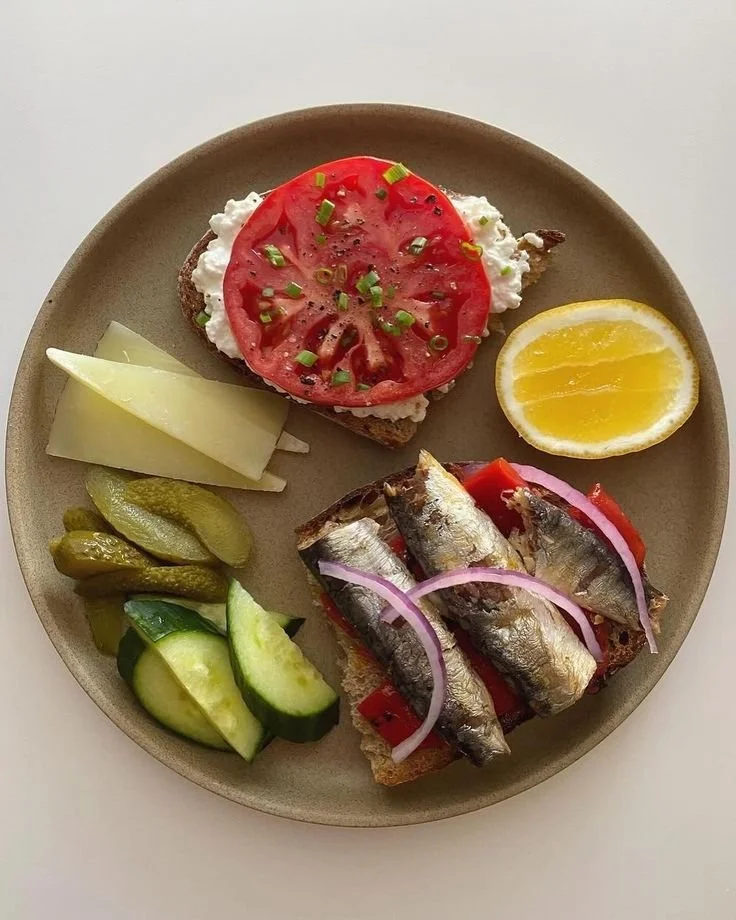Why What You Eat Matters for Endometriosis
When you live with endometriosis, it can feel like your symptoms are out of your control. Painful cycles, bloating, fatigue, and inflammation may feel like they run the show. While there’s no single “endo diet,” what you put on your plate has a profound impact on how your body manages inflammation, hormones, and even your immune system. The good news? The right nutrition choices can make a real difference in how you feel day-to-day.
Inflammation and Endo: The Missing Link
Endometriosis is an inflammatory condition at its core. That means your immune system is constantly sending out signals that create pain, swelling, and fatigue. Certain foods like processed oils, refined sugars, and ultra-processed snacks - act like fuel on the fire, worsening that inflammatory cascade.
On the flip side, anti-inflammatory foods (think colourful vegetables, omega-3 rich fish, olive oil, nuts, and seeds) help to calm the immune system and lower the intensity of symptoms. Every meal is an opportunity to either add to the fire or soothe it.
Hormones and Your Cycle
Endometriosis is also oestrogen driven, that means the higher your oestrogen activity, the more active endo can be. Nutrition plays a role here - fibre-rich foods like vegetables, legumes, and whole grains support healthy detoxification of used hormones like oestrogen. Plant compounds like cruciferous vegetables (broccoli, kale, cauliflower) help the liver metabolise oestrogen more efficiently.
The health of your gut microbiome can impact your overall oestrogen level via the oestrobolome and the β-glucuronidase enzyme, so feeding your gut microbiome what it needs is essential - prebiotic and probiotic foods.
At the same time, cutting back on alcohol, processed foods, and conventional dairy may reduce hormone-disrupting effects that make symptoms worse. Food is one of the most practical tools you have to support hormone balance every single day.
Energy and Mood
Stable blood sugar levels are essential for women with endometriosis because big spikes and crashes drive up inflammation, which can worsen pain and flares. They also play a key role in energy and focus - unstable blood sugar often leaves women with fatigue, brain fog, and mood swings, adding extra stress to an already inflamed body.
The worst foods for endo that can increase inflammation:
Processed foods and refined sugars - foods that have additives or are high sugar can cause blood sugar spikes and increase inflammation in the body. They can also worsen brain fog, irritability and fatigue.
Canola and vegetable oils - these are commonly found in takeaway and packaged foods. These oils are higher in omega-6 fatty acids which are pro-inflammatory.
Excess alcohol - alcohol stresses the liver, making it harder to clear out excess estrogen, and worsens inflammation. Even small amounts can trigger flare-ups for some women.
Conventional dairy for some women - not everyone reacts to dairy, but for many women with endo it can be inflammatory and contribute to gut symptoms. Going for A2 dairy, or sheep or goat’s dairy can be less inflammatory for some people.
The best foods for endo:
Fatty fish (salmon, sardines, mackerel): rich in omega-3 fatty acids that reduce inflammatory prostaglandins linked to pain.
Olive oil, avocado, nuts, and seeds: healthy fats that calm inflammation and support hormone production.
Colourful vegetables and fruits: especially berries, leafy greens, cruciferous veg (broccoli, kale, cauliflower), which are packed with antioxidants.
Cruciferous vegetables (broccoli, kale, Brussels sprouts): support liver detox pathways that clear excess oestrogen.
High-fibre foods (legumes, oats, quinoa, flaxseeds, chia): help bind and eliminate oestrogen through the bowel.
Flax and pumpkin seeds: contain lignans and zinc that support healthy hormone metabolism.
Fermented foods (sauerkraut, kimchi, kefir, yoghurt if tolerated): provide beneficial bacteria to support the gut–immune–hormone connection.
Prebiotic fibres (garlic, onion, asparagus, leeks): feed good gut bacteria and reduce inflammation - only if your gut can handle them (if they cause excess bloating and gas - this can indicate gut bacterial imbalances).
Ginger and turmeric: anti-inflammatory spices that soothe digestion and lower pain mediators.
Other things to think about:
What your food is stored in - avoid plastic, switch to glass and stainless steel
Checking ingredient labels - avoiding foods with canola/vegetable oils, artificial colours and flavours, numbers and strange chemical names.
If you aren’t moving your bowels daily - why not? (gut bacteria imbalances, not enough - fibre, fluid or movement). Daily bowel movements is how we efficiently get rid of our used hormones like oestrogen.

